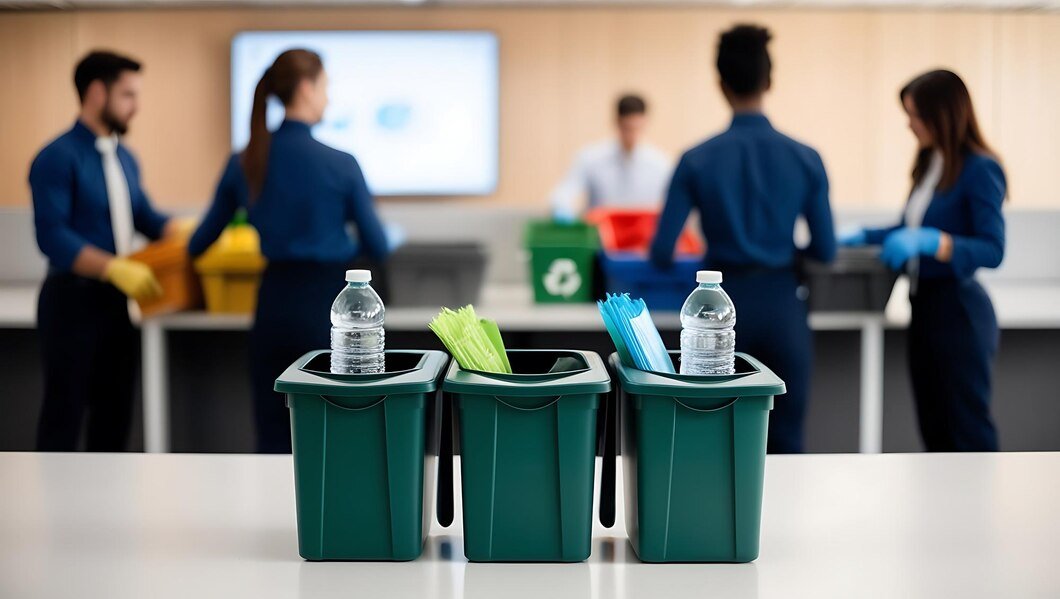In today’s fast-paced world, waste generation is an inevitable byproduct of daily activities, both at home and in businesses. But are we handling waste responsibly? More importantly, are we aware of the processes behind compliant waste disposal, emergency response services, and ethical recycling practices? This is where Hazaway comes into play—an essential guide to ensure we meet environmental standards while keeping our surroundings safe.
1. Introduction to Hazaway
Hazaway refers to a comprehensive approach to managing hazardous waste and recycling ethically. Whether you’re a business owner or just a concerned citizen, Hazaway focuses on how we can responsibly dispose of waste without harming the environment. Waste management isn’t just about throwing things away—it’s about doing it the right way.
2. Why is Compliant Waste Disposal Essential?
Why should we care about compliant waste disposal? Simple—improper handling of waste can lead to significant health risks and environmental damage. The moment hazardous materials are disposed of recklessly, they can leak into our soil, water sources, and even the air. Think of it like a ticking time bomb; the longer we ignore it, the worse the damage becomes.
3. Types of Hazardous Waste and Their Impact
Not all waste is created equal. Hazardous waste includes chemicals, batteries, medical waste, and industrial byproducts, all of which have the potential to harm human health and the environment. A single leaking battery, for example, can release toxic materials that pollute water supplies for miles.
Identifying these types of waste is the first step in disposing of them responsibly.
4. Regulations Governing Waste Disposal
Compliant waste disposal isn’t just about being environmentally conscious; it’s also a legal requirement. Various regulations, such as the Resource Conservation and Recovery Act (RCRA), govern how we should handle hazardous waste. Non-compliance can lead to heavy fines, legal action, and lasting damage to a company’s reputation.
5. The Role of Emergency Response Services in Waste Management
Emergencies happen when you least expect them, and hazardous waste spills are no exception. That’s where emergency response services step in. These services provide quick, efficient cleanup to prevent further damage, ensuring that both human lives and the environment are safeguarded.
6. Preventing Environmental Disasters Through Preparedness
Preparedness is key. Think of emergency response services like the fire extinguisher in your home—it’s there just in case things go wrong. Companies that deal with hazardous materials need to have emergency plans in place. Proper training and immediate action can prevent small spills from turning into full-blown environmental disasters.
7. What Makes Recycling Ethical?
We hear the term “ethical recycling” often, but what does it really mean? Ethical recycling ensures that materials are reused or repurposed in a way that minimizes harm to the environment. It involves fair labor practices, proper handling of materials, and a commitment to reducing overall waste.
Ethical recycling practices also involve being transparent with consumers about where materials go and how they’re processed. It’s not just about recycling for the sake of it; it’s about doing it the right way.
8. The Hazaway Approach to Sustainable Waste Management
The Hazaway approach combines compliant waste disposal with ethical recycling, all while ensuring emergency preparedness. It’s a holistic way to deal with waste that minimizes risks and maximizes sustainability. This includes educating communities and businesses about best practices and providing tools to implement these measures effectively.
9. Benefits of Ethical Recycling Practices
Ethical recycling doesn’t just benefit the environment—it also boosts business credibility and promotes sustainable consumer practices. When companies commit to ethical recycling, they enhance their brand reputation while reducing their carbon footprint.
For individuals, ethical recycling offers peace of mind, knowing that their efforts are contributing to a healthier planet.
10. Challenges in Implementing Ethical Recycling
As ideal as ethical recycling sounds, it isn’t without its challenges. One major hurdle is the cost. Proper sorting, processing, and repurposing of materials can be expensive. There’s also the issue of public awareness—many people still don’t know what can and can’t be recycled. Overcoming these barriers requires both education and investment.
11. How Businesses Can Ensure Compliant Waste Disposal
For businesses, ensuring compliant waste disposal means understanding the regulations and implementing proper protocols. This includes training employees, investing in the right equipment, and regularly auditing waste management practices. Partnering with certified waste management companies is another crucial step.
12. Educational Initiatives for Ethical Waste Management
Education is the foundation of change. Initiatives aimed at educating the public and businesses about compliant waste disposal and ethical recycling are critical. Workshops, awareness campaigns, and school programs can all play a role in fostering responsible waste management practices.
13. Conclusion
In conclusion, Hazaway isn’t just about waste disposal; it’s about adopting a responsible, compliant, and ethical approach to managing waste. From proper disposal techniques to emergency response services and ethical recycling, the Hazaway method ensures a safer, more sustainable environment for future generations.
14. FAQs
1. What is compliant waste disposal?
Compliant waste disposal refers to the safe and legal handling of waste in accordance with local, national, and international regulations.
2. Why are emergency response services essential in waste management?
Emergency response services help contain and clean hazardous spills quickly, preventing environmental damage and health risks.
3. What is ethical recycling?
Ethical recycling involves reusing and repurposing materials in a way that minimizes environmental harm, ensures transparency, and promotes fair labor practices.
4. How can businesses ensure compliant waste disposal?
Businesses can ensure compliant waste disposal by following regulations, training employees, and partnering with certified waste management companies.
5. What challenges exist in implementing ethical recycling?
Challenges include the high cost of proper recycling, lack of public awareness, and the need for better infrastructure for sorting and processing materials
